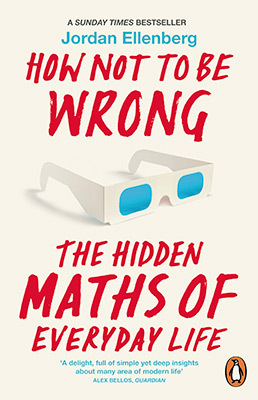
Algorithms to Live By: The Computer Science of Human Decisions
Book Description
What if the secret to mastering life's toughest decisions lay buried in the algorithms that power our computers? In "Algorithms to Live By," Brian Christian takes you on an electrifying journey through the intersection of computer science and human behavior. Discover how timeless strategies from the world of computing can illuminate everyday dilemmas, from choosing the best job to finding the love of your life. With each chapter, the thrill builds as complex problems unravel to reveal elegant solutions, challenging everything you thought you knew about decision-making. Are you ready to rethink your choices and harness the power of algorithms in your own life?
Quick Book Summary
"Algorithms to Live By" explores the fascinating intersection between computer science and everyday human decision-making. Brian Christian and Tom Griffiths reveal how classic algorithmic strategies can transform the way we solve life's puzzles, from securing a parking spot to organizing our digital and physical worlds. The authors translate complex computing concepts like optimal stopping, sorting, scheduling, and game theory into practical insights for challenges such as choosing partners, minimizing regret, and streamlining daily routines. By demystifying how computers weigh efficiency, trade-offs, and uncertainty, the book empowers readers to tackle their own problems with clarity and confidence. With engaging stories and clear analogies, it shows that algorithms aren't just for machines—they can make us smarter, more decisive humans as well.
Summary of Key Ideas
Table of Contents
Optimal Stopping and Making Decisions
The book opens with the concept of optimal stopping, a principle derived from algorithms that helps determine the best moment to make a choice with limited information. Through memorable examples such as hiring an employee or apartment hunting, the authors explain the 37% rule, which mathematically defines the point at which it's advantageous to stop searching and commit to a choice. This algorithmic approach is shown to minimize future regrets and maximize satisfaction in various high-stake personal decisions.
Balancing Exploration and Exploitation
Another key idea is the exploration-exploitation trade-off—a fundamental dilemma both in computing and daily life. Whether looking for a new restaurant or picking a career path, the book demonstrates how computer science offers strategies to balance the urge to explore new possibilities with the need to exploit known good options. The discussion covers multi-armed bandit problems and suggests real-world applications such as when to stick with routine and when to seek novelty, showing that calculated risk-taking can improve outcomes.
Managing Memory and Organization
Storage and organization, crucial concerns both for machines and people, form the basis for understanding cache memory, sorting, and organizing information efficiently. The authors offer practical parallels between a computer’s need to prioritize quick access to information and human efforts to organize homes, desks, and digital files. They discuss strategies like "least-recently-used" for decluttering physical and mental spaces, demonstrating how these ideas lead to cleaner, more functional environments and improved productivity.
Coping with Uncertainty and Dealing with Regret
Uncertainty and regret are inevitable in both computer algorithms and life. "Algorithms to Live By" draws on probability theory and Bayesian reasoning to help readers make informed guesses and adapt to change. The book explains how to handle incomplete data, optimize decisions under pressure, and even find peace with inevitable wrong turns. By reframing uncertainty as a computationally manageable element, the authors offer readers reassurance and practical tools for coping with regret and ambiguity.
Game Theory and Social Dynamics
Finally, the authors explore the role of game theory and social dynamics, analyzing how principles that govern computational negotiations also shape communications, cooperation, and competition among humans. Concepts like the prisoner's dilemma and zero-sum games are applied to family negotiations, workplace politics, and social interactions, illuminating the computational logic underpinning group behavior. Throughout, the book argues that understanding and applying algorithms can make us better at living, choosing, and collaborating in an increasingly complex world.
Download This Summary
Get a free PDF of this summary instantly — no email required.





